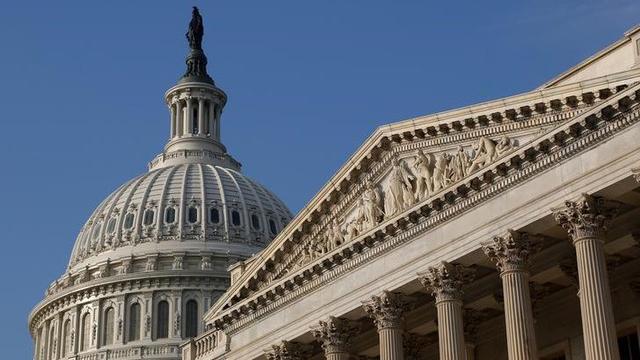Forget a peace dividend, are we paying a 'polarization tax'?
Businesses are faced with navigating a host of new challenges in today’s economic and political environments, including what one expert is calling a “polarization tax,” which makes it both difficult and expensive to operate in markets around the world.
Adam Blumenthal, former first deputy comptroller of New York City and founder of Blue Wolf Capital Partners, said over the course of a couple decades there has been a shift from the “peace dividend” era to this new polarized world.
Peace dividend is a term credited to President George H. W. Bush, referring to savings that would be incurred as a result of a cutback in defense spending.
“For the last four years the right business strategy has been to assume a global marketplace and that has driven growth,” Blumenthal told FOX Business. “The polarization tax is that, if you do that now, you’re going to get your head handed to you. It will be a slower growth world and people who don’t adapt to the new reality are not going to succeed.”
TRUMP'S RUST BELT REVIVAL IS FADING. WILL IT MATTER IN 2020?
The idea does not pertain just to the U.S., but to countries around the world.
Blumenthal, who first detailed his idea of a polarization tax in an op-ed published in The Washington Post, said insular thoughts and actions around the globe have been primarily driven by three things: high levels of income inequality, a flood of unfiltered images and data that allow individuals to create their own realities and a debilitating financial crisis that has left people wondering how things are actually different today.
“That polarization is not going away any time soon regardless of any independent election or [actions taken by] any individual country,” he said.
THERE’S A 50% CHANCE RECESSION WILL HIT IN 2020, ECONOMIST SAYS
The economic effects can be felt in the form of things like tariffs and immigration restrictions. The latter is a tax paid daily by those who employ people or who buy and distribute global commodities, Blumenthal said.
Chris Edwards, director of tax policy studies at the Cato Institute and editor of www.DownsizingGovernment.org, told FOX Business that the main themes behind a polarization tax seem reasonable.
“I interpret Blumenthal’s ‘polarization tax’ to be the extra burden on the economy of a dysfunctional federal government,” Edwards said. “Federal policies on infrastructure, immigration, trade, and other activities have been chaotic, which has added uncertainty to business decision making and undermined investment.”
GET FOX BUSINESS ON THE GO BY CLICKING HERE
While governments are having a difficult time adjusting to the polarized environment, Blumenthal believes the market has helped some companies evolve smoothly.
“Being all things to all people is not a good strategy,” Blumenthal said. “Consumers are rejecting [businesses that] want to be all things to all people. They want to know that a company or its leadership has a perspective, has principles.”
Taking a stance, however, does not necessarily mean alienating sects of customers. Chick-fil-A, for example, sticks to conservative values but still sells its product to all customers, Blumenthal noted.
The idea that companies have an obligation beyond making profits was floated by BlackRock CEO Larry Fink at the beginning of 2018 in a letter he wrote to executives of the world’s largest companies. In the note, he said every company should reach beyond financial performance to make a positive contribution to society.
CLICK HERE TO READ MORE ON FOX BUSINESS
So how much does a polarization tax cost? While it is difficult to know, Blumenthal referred to an example of an advanced form of polarization in Brexit. Estimates for the cost of Brexit cluster around 5 percent per capita income in the United Kingdom – a tax a lot of people seem to want to pay. Since it hasn’t happened yet, actual costs could turn out to be even higher.




















